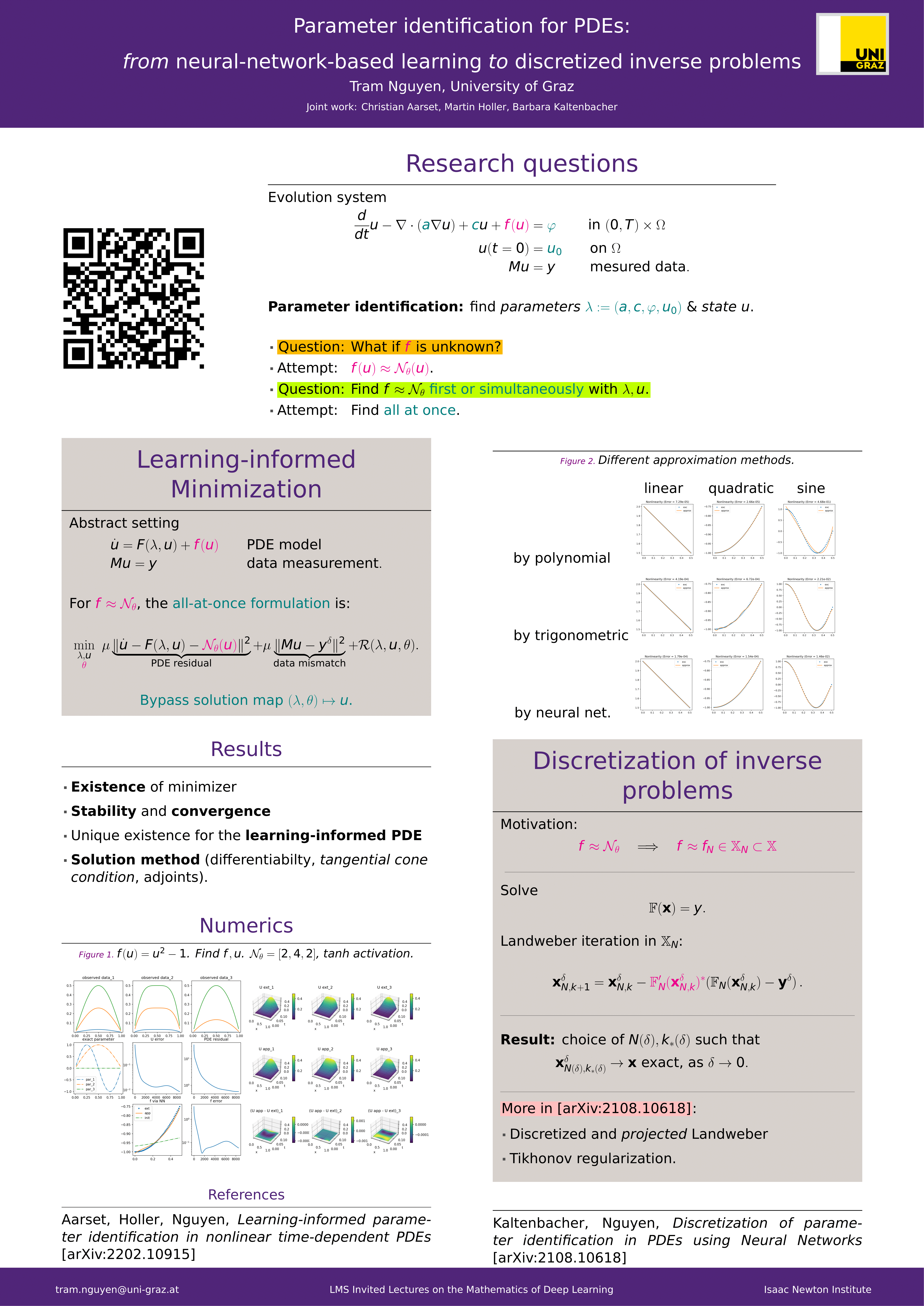Research interests
Research topics
Magnetic Partical Imaging (MPI)
[1]
[2]
Figure. Magnetization (right) of a particle in response to a dynamic external field (left); middle: initial magnetization vector [GIP] |

|
Parameter identification for PDEs:
from neural-network-based learning to discretized inverse problems
[3]
[4]
More generally, the representation via neural networks can be realized as a discretization scheme. We study convergence of Tikhonov and Landweber methods for the discretized inverse problems, and prove convergence when the discretization error approaches zero. poster |

|
